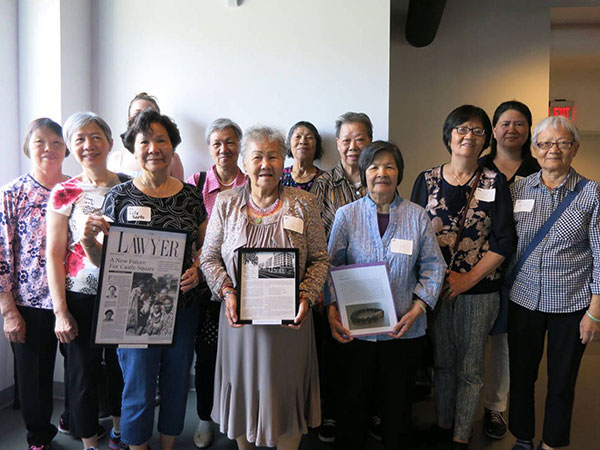The ‘Roadmap for Participatory Archiving’ (known as RoPA) has been developed by UMass Boston’s Joseph P. Healey Library.
More and more, librarians and museum curators recognize the potential for these types of projects to break down hierarchies and enrich local, regional, and national histories. By playing an active role in selecting and describing what should be preserved in an archival collection, community members can transform our collective understanding of the past. Through participatory archiving, these groups come together to build a more inclusive archival record.
“We created RoPA to answer calls from colleagues around the country for guidance on how to undertake participatory archiving projects in their own communities.”
Carolyn Goldstein, coordinator of the Healey Library’s Mass. Memories Road Show program.
- The Community
- Ensuring Inclusiveness
- Defining Community
- Collecting Stories
- Encouraging Participants
- The Event
- Coordinating Logistics
- Obtaining Permissions
- Descibing Items
- Copying Items
-
- Putting the Collection Online
- Preserving the Collection
- Sharing the Collection
- The Collection
Read More:
Case Study: The Mass. Memories Road Show
For this program, archivists and public historians in the Healey Library at UMass Boston work in partnership with local planning teams and volunteers to organize free public events where individuals bring photographs to be copied and included in a digital archive.
Since its launch in 2004, the Mass. Memories Road Show has digitized more than 12,000 photographs and stories from across the Commonwealth, creating an educational resource of primary sources for future generations.
“I was thrilled when I was asked to work on the RoPA project team with several professionals from libraries and cultural institutions across the country. The collaboration and the sharing of ideas and knowledge helped strengthen the final project deliverable which will be an excellent guide for institutions and organizations as they collect and document personal and local stories and histories for future generations to enjoy or use for research.”
Kathy Amoroso of the Maine Historical Society





